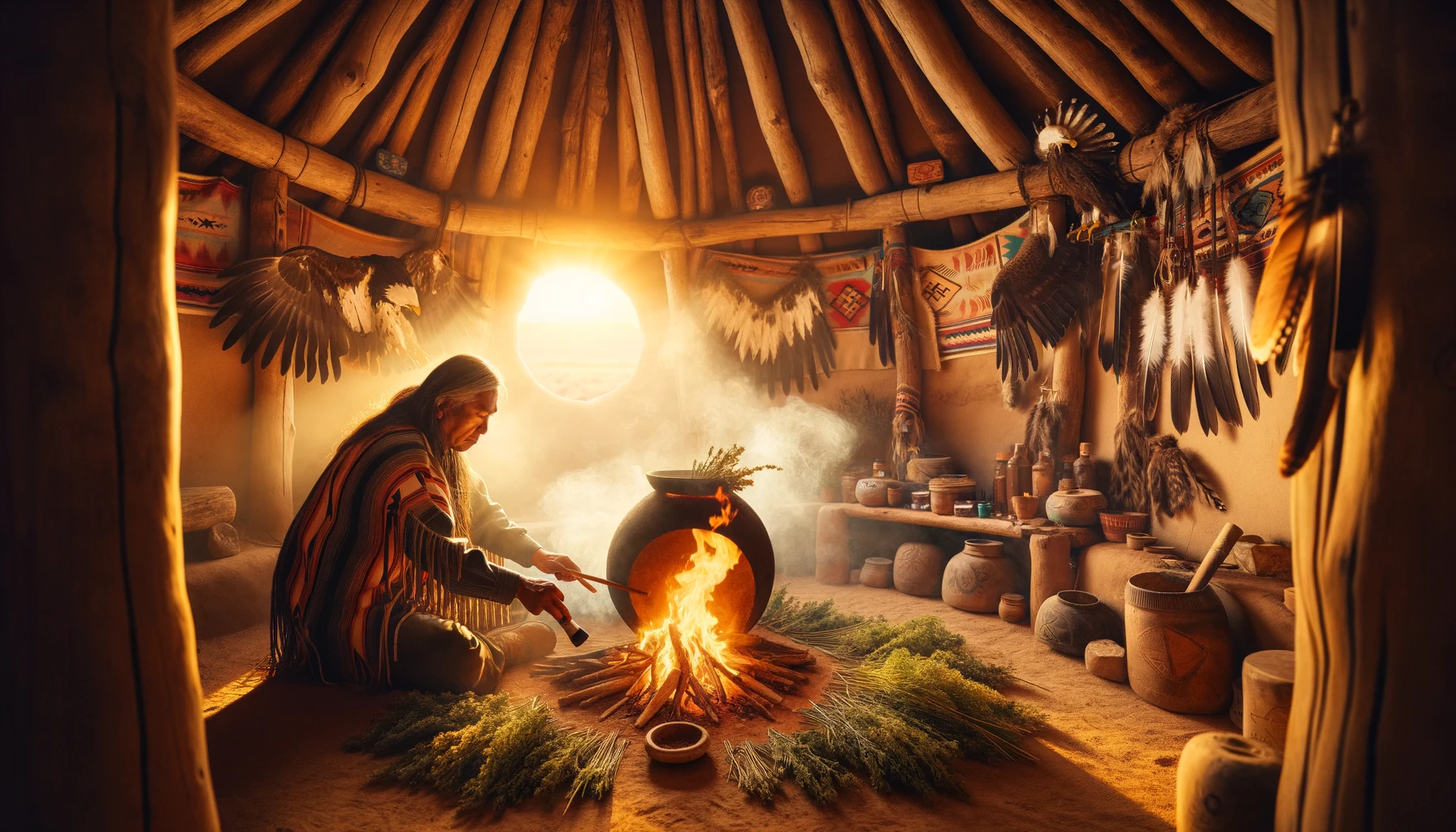A Journey of Renewal in Navajo Healing Traditions
In a secluded hogan at the Navajo Nation’s southern border, Wayne Wilson ignites a sacred fire and arranges eagle feathers, channeling the wisdom of his grandfather. “He would guide me, emphasizing our joint activities like praying and singing, stressing the importance of attentiveness due to the uncertain future,” Wilson recalls.
Following in his grandfather’s footsteps, Wilson is a traditional Navajo healer. He harnesses the power of herbs, song, and ceremonial practices to enhance the mental and physical health of his community, occasionally integrating techniques like acupuncture based on individual needs.
Wilson’s path to healing was born from personal adversity, marked by childhood trauma, substance abuse, and the cultural alienation he experienced in boarding schools. A pivotal moment of resolve led him to the Native American Baha’i Institute. Here, Wilson embraced a synthesis of Navajo and Baha’i spiritual practices, marking the beginning of his sober and medicinal journey.
Now, Wilson blends these ancient techniques with global cultural practices to foster healing, adhering to a philosophy of mutual exchange: the energy you give is the energy you receive.
The Vital Role of Cultural Practices in Native American Mental Health
Scholars like Hilary Weaver, a social worker and professor emeritus at the University at Buffalo, emphasize the critical integration of indigenous cultural practices into mental health care for Native Americans. Despite growing recognition, the availability of culturally aligned care lags behind, burdened by accessibility and affordability challenges.
Indigenous communities disproportionately suffer from severe psychological distress and substance abuse, a reflection of enduring multigenerational trauma from colonization and systemic oppression. Traditional healing, deeply rooted in Indigenous culture, seeks to restore holistic balance, contrasting with the symptom-focused approach of Western medicine.
“Traditional ways provide a profound sense of recovery and wholeness that predates modern psychological interventions,” Weaver asserts, highlighting the comprehensive nature of Indigenous healing that involves herbal remedies, spiritual rituals, and community participation.
Challenges in Accessing Native Healing Practices
Despite its acknowledged benefits, access to traditional healing is restricted, particularly for Native Americans living away from tribal lands. Roland Begay, a healer with over three decades of experience and coordinator at the Chinle Comprehensive Health Care Facility, shares that cultural and family dynamics play a significant role in mental health, making culturally relevant treatments more effective.
While traditional healing is available at no cost in some locations, the demand often exceeds what the chronically underfunded Indian Health Service can provide. Only a fraction of facilities offer traditional healing, and those that do are primarily located on reservations, despite the majority of Native Americans residing in urban areas.
Recent legislative efforts in states like Arizona and California have sought federal approval to include traditional healing under Medicaid, which would significantly enhance accessibility and affordability. However, federal responses have been tepid, with ongoing negotiations yet to yield substantive policy changes.
Preserving Traditional Knowledge for Future Generations
Wayne Wilson, committed to the preservation of these practices, provides healing regardless of a person’s financial ability, accepting offerings like turquoise or food in exchange. His concern extends beyond immediate healing, focusing on the transmission of knowledge to younger generations, many of whom show dwindling interest in traditional practices.
In places like Diné College, educators like Avery Denny emphasize the importance of understanding Navajo language and culture as intrinsic components of healing ceremonies. “Without a deep connection to our language, the essence of our ceremonies, which are fundamentally healing, is lost,” Denny explains.
Despite facing numerous challenges, including limited funding and bureaucratic hurdles, the commitment to sustaining traditional Native American healing practices remains strong, driven by a dedicated community of healers and advocates determined to keep their cultural heritage alive and accessible for future generations.
